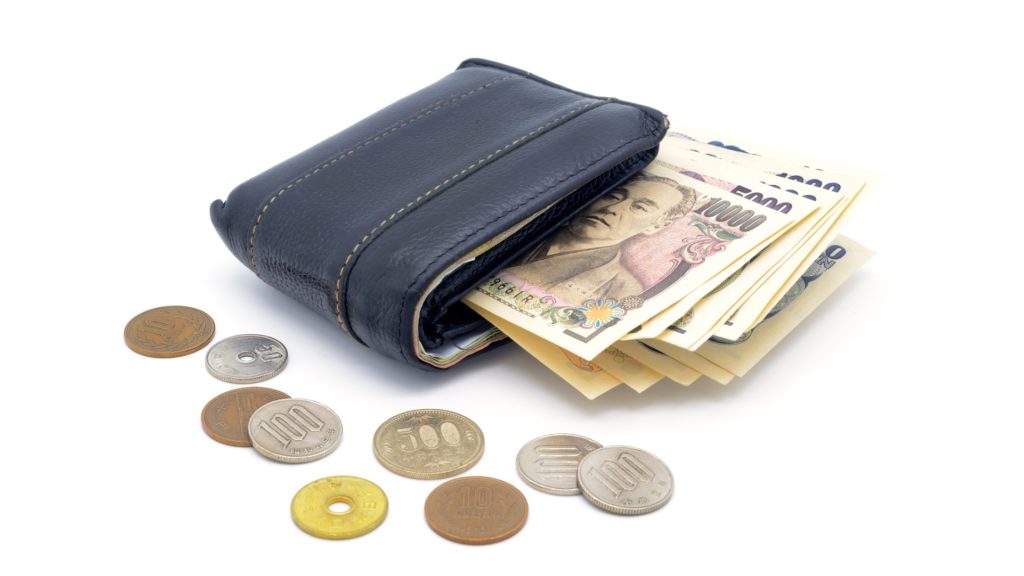One of the things I love about living in Japan is the feeling of safety that comes from its very low crime rate. However, even a safe haven like Japan can still have its own moments of chaos, as I learned this week.
On Saturday morning, I discovered my wallet was missing, and in all likelihood stolen, while I was out on Friday night. Now, losing the ¥10,000 or so that was in the wallet is a pain, but it was nothing compared to losing my ATM, Visa debit and residence card, and perhaps most harrowingly — my points card for my favorite foreigner-friendly bar, Hub. (I was only a couple of hundred points short of some free drinks!)
Joking aside, getting out of this predicament required a huge effort and several pieces had to fall into place. It didn’t exactly go according to plan, but with an extreme amount of patience and knowing when to say, “Enough is enough!” to Japan’s endless red tape, it was more or less a happy ending. I figure that my suffering could at least serve some good to others finding themselves in the same dreary predicament.
Quick tips to remember:
- You’ll likely need at least a day to go and get it straightened out; a majority of it you cannot do over the phone.
- Report it to the police and obtain the correct documents to proceed to the rest.
- You need more than an incident number from the police. Request a certificate to present to immigration.
- You’ll likely have to dish out some additional cash to replace some of your cards.
So, here’s an account of what I did — and what you can learn from my mistakes — if you find yourself having lost your wallet and important cards in Japan.
Who ya gonna call?
First off, the most important step is to notify the police. Go to your local koban (police box) and report the loss. You will be asked to provide details of where and when you last had it, what was inside, as well as a physical description of the wallet itself. You will then have to provide some personal details. If you’re not confident in your Japanese ability, take a Japanese friend with you.
 Photo: Malcolm Browne
Photo: Malcolm BrowneWhen the formalities are complete you will be given a piece of paper with an incident report number on it. Keep this paper safe. In the event that your lost item turns up later, you will need this number to get it back.
An important footnote here: the police I spoke to didn’t quite handle this situation correctly. In addition to the incident number note, you should also ask for a certificate of loss, proving that your item is lost and has been reported to the police. The officer in charge mistakenly told me that the incident number note was sufficient proof of this. It wasn’t, but more on that later.
Canceling your bank cards
The next step, and perhaps the most troublesome, is to cancel your bank cards. Check your bank’s website and find the number for reporting lost or stolen cards: pretty much all banks in Japan have a 24-hour emergency number for this purpose.
In Japan, getting angry, ranting and raving constantly complaining will get you nowhere.
Expect to be given a barrage of complicated — and often quite intrusive — questions.
I have to admit, UFJ bank really needs to improve their service here. Despite telling the staff multiple times that keigo (honorific Japanese) is hard for me to understand, and asking her to speak in slow, simple sentences, she persisted with what was obviously a pre-written script. Also, I was made to give the same name, address and phone information a total of six times during the hour or so I was on the phone with them. Safe to say, I was not best impressed with this.
Shinsei Bank, on the other hand, got full marks in this regard. English speaking staff, and my cards were canceled in a matter of minutes.
Unfortunately, it’s not possible to order replacement cards over the phone. You need to go into the bank to do that. As most of you will know, banks in Japan are only open from 9 a.m. to 3 p.m. Monday to Friday. So I had no choice but to take a day off work and go sort this out.
This wasn’t really a big issue, since, having no travel card and only about ¥500 in loose change lying around, I couldn’t afford to go to work anyway. Different banks have different policies of course, but I was told by both Shinsei and UFJ that in order to get a new bank and Visa card, I would have to present my ID card. My response that I don’t have an ID card, since it was stolen was met with a somewhat typically apologetic, “Sorry it’s the rules.”
Japan: big on rules, but often lacking in common sense.
A daunting trip to Immigration
 Photo: lcars
Photo: lcarsBefore anything could proceed further, a trip to immigration would be necessary.
So, on Monday morning, having called my school and explained the situation to my very patient and understanding colleagues, I headed over to the immigration office, with my passport in hand, along with the incident number from the police and some new photos for the ID.
The police incident number wasn’t acceptable to immigration as a proof of loss.
I arrived, completed the application form, and then headed up to the counter.
Then the problems began.
First, the police incident number, as I previously mentioned, wasn’t acceptable to immigration as a proof of loss. “You need to go back to the police station and get a certificate.”
This did not sit well with me. I had almost no money, with no means to access more, and I only had one day to get all my new cards arranged.
I told immigration directly, but politely, that I didn’t have the money to go back to the police station and that my bank would not give me any more money until I could show them a new ID card. What followed was an hour-long back and forth of immigration and the police basically trying to blame each other for this oversight. In truth, it was probably my own fault for not sufficiently researching the situation.
Patience and determination pay off!
This is an important lesson I would offer to you all to take away from my experience. In Japan, getting angry, ranting and raving constantly complaining will get you nowhere.
Instead, what I have found to be most effective is a stance of obstinate patience. Don’t raise your voice, don’t be angry but also, do not make any concessions. Every time immigration told me I could not get a new card unless I went to the police station first, my slow, steady and continuous response was: “I already went to the police, they told me this document is acceptable. I don’t have the money to go there again. This needs to be resolved now.”
Whether it was down to a genuine desire to help, or just that they wanted to be rid of me, after about an hour, immigration caved in and agreed to make a new card for me. New ID card in hand, I headed to the bank to get my hands on some much-needed funds.
The last steps to victory
Much like my telephone call with Shinsei Bank the day before, they were once again very helpful and accommodating. I had two choices: Pay a nominal fee of ¥1,300 to get a new card there and then, which would be activated 24 hours later, or wait a week for it to be mailed out and get it for free. I went for the former. The whole thing was done in 15 minutes. I will at some point later this week need to call them again to reactivate my online banking, but I don’t see this being a problem.
UFJ took a bit longer and was more expensive. In the end, I had to pay ¥3,000 to have my new ATM, online banking and Visa cards issued, but I won’t receive them for another five to 10 working days. They did allow me to take out some funds in the meantime, though.
Overall, this is not an experience I am keen to repeat, but in a way, I’m glad it happened. It has certainly been a learning experience. Oh, and just one more thing. To whatever lowlife has my wallet and still, almost a week later, hasn’t handed it into the police: if I don’t find you then someday soon, karma will!





This site is protected by reCAPTCHA - Privacy Policy - Terms of Service
I need to say a big thank you for this – I didn’t get my walking back, since I think it actually got stolen, BUT had I not pushed the police to create a certificate of loss, I wouldn’t have been able to get my residence card as soon as I did, so thank you for being such a big help!